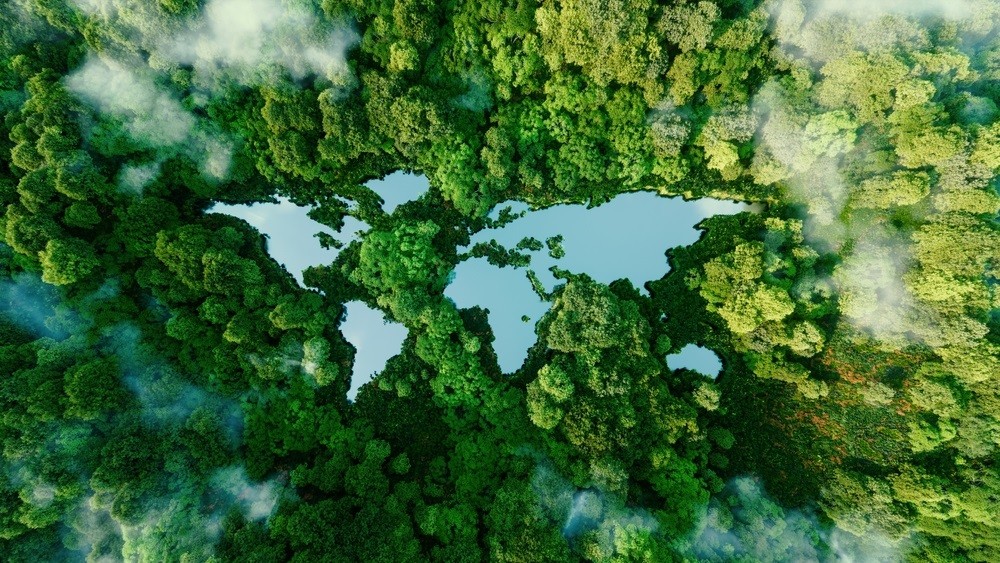
2. Procedures and Evidence
A. Actors Involved
5. CURRENT APPLICATIONS
In most countries, the climate and environmental litigation landscape is characterised by a diverse range of claimants, defendants, and (sometimes) third-party intervenors.
Claimants
In most of the 17 focus countries, legal claims have been brought by NGOs, activists, individuals, and shareholders. Local NGOs and individuals have brought public interest cases in countries like India, Kenya, Nigeria, Germany, China, France, Netherlands, Norway, Poland, the United Kingdom, Australia, Brazil, and the Philippines. Thus, NGOs and public-spirited individuals are among the most common actors to bring such cases.
NGOs and Other Civil Society Members:
In the Philippines, NGOs on behalf of Resident Marine Mammals succeeded in obtaining legal personhood for mammals so that they could bring climate claims before the court (see Section on Standing). Canada is witnessing a shift towards corporate accountability, with claimants being individual members of communities coming together and also provincial governments, as seen in the cases by Westcoast Environmental Law. In Brazil, claimants typically include civil society and indigenous groups that have been injured by the defendant's acts or omissions. As per the Plataforma de Litigância Climática no Brasil, 2024, civil society organisations have brought twelve cases (see Brazil's National Report for more details). Notably, in China, the case that has set a groundbreaking precedent was the Friends of Nature Institute v. Gansu State Grid, where the NGO sued the State-owned enterprise Gansu State Grid for its high abandonment rate of wind power in violation of the Renewable Energy Law in China. Many such cases like Milieudefensie v. Royal Dutch Shell in the Netherlands, Notre affaire à tous and others v. TotalEnergie in France, Greenpeace, Re:Common et al. vs ENI and Survival International Italia v. Pasubio (brought on behalf of Indigenous people) cases in Italy, similarly, the cases of People v. Arctic Oil and Fosen case in Norway, and Saúl Luciano Lliuya v. RWE case supported by German Watch in Germany serve as significant examples of NGOs bringing cases against corporations for their acts or omissions that adversely affect climate change, on various grounds. In Nigeria, the Gbemre Case is brought by a public-spirited individual against Shell and the Nigerian government for failure to stop the flaring of natural oil in the Niger Delta. Similar cases can be noted in India, albeit mostly against the government, like MC Mehta v. Union of India (Taj Trapezium Case), and Rajiv Dutta v. Union of India.
Shareholder (Activism) and Directors' actions:
Australia has led on shareholder activism as seen in the ACCR v. Santos and the Australian Conservation Foundation Inc v Woodside Energy Ltd cases, among others. These aim for outcomes like policy changes and corporate behavioural shifts. In Germany, multiple cases brought against automotive companies like Wintershall Dea AG, Volkswagen AG, BMW, and Mercedes-Benz AG have been brought by the managing directors as natural persons with the support of NGOs.
States, Cities, Local Governments:
Certain state governments have filed legal claims against corporations, as seen in the United States in the case of State of California v. Big Oil (also see section on nuisance and fraudulent misrepresentation). Certain cities and local governments have filed claims based on tortious principles. The use of tort as a basis for action is prominent in the United States in (second wave) cases such as City of Oakland v. BP p.l.c. where there are current public nuisance actions brought by the City of Oakland and the City of San Francisco against fossil fuel companies. This trend of municipalities and local and State governments bringing climate and environmental claims against corporations is seen not only in the United States but also in Canada with the Sue Big Oil Campaign and the Canfor Case, in which the British Columbia government successfully pursued a public nuisance claim against a logging company.
Defendants
Among the focus countries, Australia, the United States, the United Kingdom, the Netherlands, Italy, France, Germany, Canada, and Japan have seen climate claims against corporations and companies. However, in these countries, the secondary defendants are local governments and regulatory authorities - with defendants in the energy, mining, and agriculture sectors. In other focus countries such as India, Brazil, Philippines, China, Kenya, Nigeria, and Norway, the central and local governments are the main defendants against whom climate and environmental claims have been brought. In Brazil and India, the specific departments of the government, such as the energy and agricultural sectors, are the ones against whom the claimants have sought remedies. Countries like India, Germany, Nigeria, Kenya, Italy, and Norway have also witnessed claims against project-specific government and private entities. There has been an increasing trend of strategic 'backlash' litigation against NGOs and civil society organisations that have been brought by corporations. The most recent of such cases is Shell v. Greenpeace UK, wherein Greenpeace issued a press release stating it faces a lawsuit from Shell and its co-claimant, the platform builder Fluor, seeking $8.6m in damages and a protest ban.
Against Corporations, Companies, Private Entities:
In Australia, cases directly against corporate entities that hold them accountable for their climate change impacts are known as 'next generation' cases. Typical examples of these cases include, Victoria Inc v AGL Loy Yang Pty Ltd and ACCR v Santos. Other cases against private entities such as financial institutions, superannuation funds such as McVeigh v Retail Employees Superannuation Pty Ltd. In Brazil (as per JUMA, Brazilian Climate Litigation Bulletin 2023), companies were identified as defendants in at least 25 cases by 2023.
They are often sued in environmental licensing lawsuits, typically those involved in fossil fuel production. In France, defendants include large companies like EDF, BNP Paribas, and TotalEnergies for various claims, including financing harmful industries, contributing to climate change, and ecological damage. One such notable case is Notre affaire à tous and others v. TotalEnergie where the big French oil company violated the French Commercial Code by failing to adequately report climate risks associated with its activities and take action to mitigate those risks in line with the goals of the Paris Agreement. In Netherlands, along with fossil fuel producers (Royal Dutch Shell case) other defendants include banks which have been targeted through filing OECD complaint as seen in Milieudefensie et al vs. ING case. The Fosen case in Norway also demonstrates litigation aimed directly at corporations, reflecting the requirements set by Norwegian environmental legislation on commercial companies for sustainable business practices. The Residents Marine Mammals case in the Philippines involves foreign corporations, thus broadening the potential of transnational cases. The National Inquiry on Climate Change (NICC) report by the Human Rights Commission also notes a major shift of behaviour in targeting carbon majors in the Philippines.
Against Governments:
In India, defendants are usually the central and the state government, and they are targeted for their actions or inactions that contribute to environmental degradation and climate change, as seen in Rajiv Dutta v. Union of India. In another landmark case M.K Ranjitsinh vs Union of India, the main defendant was the central government; however, the Supreme Court explicitly laid down the liabilities of Corporates towards the environment arising from the provisions of the Companies Act, 2013. Similarly, most of the notable cases in the Philippines, such as Segovia, GLACC, Antonio Oposa, and Resident Marine Mammals have been brought against the governments and other governmental authorities.
Against Companies for Project-Specific:
Australia has seen project-specific claims against companies in Australian Conservation Foundation Inc v Woodside Energy Ltd. The Australian Conservation Foundation (ACF) launched proceedings challenging Woodside Energy's Scarborough Gas project due to the impact of greenhouse gas emissions on the Great Barrier Reef. In Nigeria, the Gbemre case has brought cases against the oil and gas company (Shell) for not stopping the flaring of natural gas in the Niger Delta, thus degrading the environment.
Third-Party Intervenors
Countries like Italy, Germany, the Netherlands, Norway, Poland, and France have specific laws that limit the intervention of third parties unless they are directly affected by the claim in question before the court. China has not yet seen any third-party interventions in climate or environmental cases. Moreover, in countries with a flexible precedent or legislation on standing, like the Philippines, India, Kenya, Nigeria, Australia, Canada, and the United States, third-party interventions are allowed at the court's discretion. The most common actors that intervene are regulatory authorities, statutory bodies as amicus curiae as seen in Brazil, as well as the NGOs and governments as seen in cases of New York v ExxonMobil and Plaquemines Parish v Chevron, respectively in the United States. Interestingly, in the case of Hope of Kentucky, LLC v. Cameron, corporate actors who support or oppose ESG reporting are emerging as potential intervenors, highlighting the growing complexity of climate litigation in the U.S.
